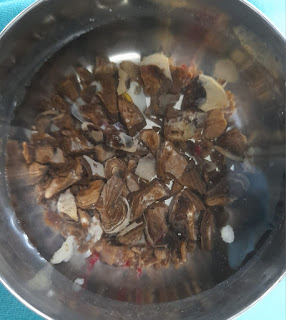LAMINECTONY USING INTRAOPERATIVE NEUROMONITORING
A 56 year old lady has been presented at Ruby General Hospital with complaints of low back pain radiating down right leg and has been put under the expert care of Dr. Tamajit Chakraborty (Consultant Neurosurgeon). After thorough evaluation and relevant investigations the MRI revealed homogenously enhancing lesion in right side of spinal canal at T7 – T8 level and neural foraminal lesions in the right T7 - T8 which causes moderate compression of the cord at this level. There was also neoplastic lesion (An abnormal mass of tissue that forms when cells grow and divide rapidly) like neurogenic tumour. The lady had been diagnosed with a rare intradural extramedullary tumour (A spinal cord tumour that causes spinal cord compression) on dorsal vertebrae 7 (D7). After discussion with the treating consultant and the family the lady had been posted for surgery. D6 – D8 and D7 complete laminectomy and excision of space occupying lesion (SOL) had been performed. The patient was neurologically intact despite having severe pain and Intraoperative Neuromonitoring (IONM), namely, Stomatosensory Evoked Potentials (SSEP) and Motor Evoked Potentials (MEP) had been used to remove the tumour completely without any neurological deficit. The postoperative period had been uneventful.
Laminectomy is a part of a
decompression surgery where bone spurs and tissues are removed to ease pressure
on the spinal cord or the nerve roots that may be caused by injury, herniated disk
or tumours. Intraoperative Neuromonitoring (IONM) is the continuous
surveillance protecting the patient’s nervous system (Brain, spinal cord, and
nerves) when it can be at risk during surgery. Usually, IONM works by
delivering electrical impulses and measuring their effect on the nervous system
increasing the chances of a positive surgical outcome.



Thanks for sharing! If anyone is looking for professional neurological care in Chennai, Sundaram Medical Foundation has the best neurologist in anna nagar and mogappair, providing personalized treatment for all kinds of movement and neurological disorders.
ReplyDelete